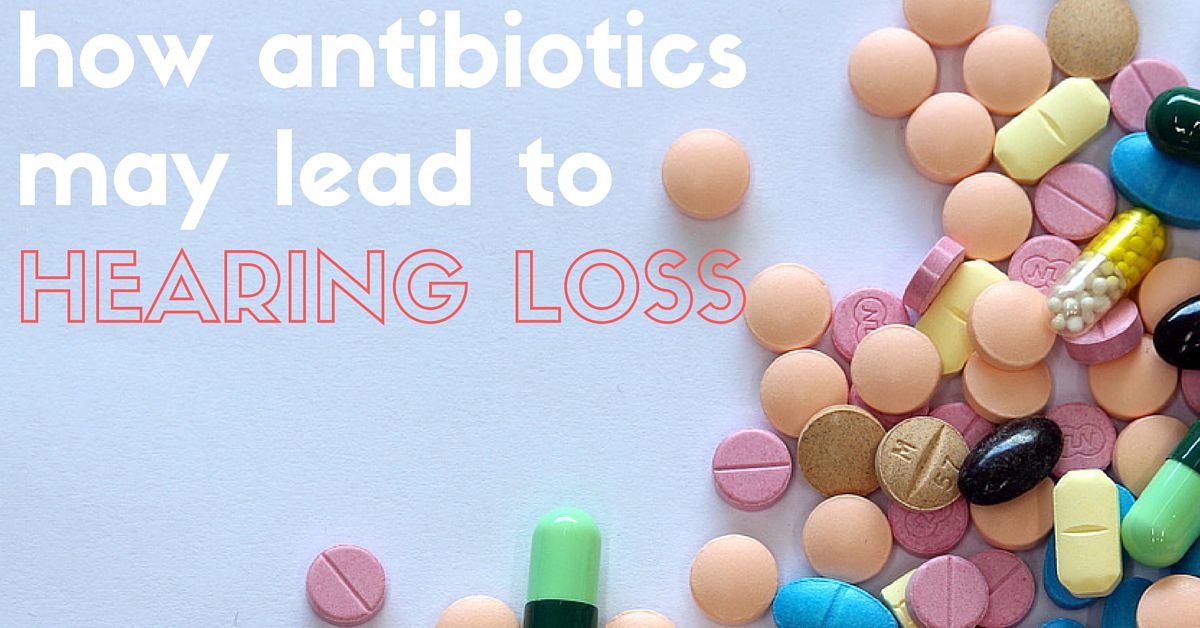All About Bluetooth Hearing Aids
Do you remember the hearing aids your parents or grandparents used to

By: admin | July 12, 2016
There’s no doubt that antibiotics are a lifesaver. But did you know that certain classes of antibiotics may lead to hearing loss? Research from the Oregon Health & Science University (OHSU) School of Medicine shows a link between aminoglycoside antibiotics and hearing loss.
A study from the OHSU School of Medicine has found that patients treated with aminoglycoside antibiotics are at risk of hearing loss.
Aminoglycoside antibiotics are used to treat a variety of conditions, and is known as a strong and effective solution to inflammatory bacterial infections. These infections include meningitis, bacteremia, and respiratory diseases for patients with cystic fibrosis.
At OHSU, healthy mice were given small amounts of aminoglycosides and experienced small degrees of hearing loss, while mice that had bacterial inflammation and were given higher doses of the same drug were found to experience higher degrees of hearing loss as a result.
The lead researcher, Dr. Peter Steyger, professor of otolaryngology at OHSU, was treated as a child for meningitis with aminoglycoside antibiotics and subsequently lost his hearing. Dr. Steyger explains, “If you give a healthy animal, or a healthy human, an aminoglycoside for long enough, they will go deaf. If they have an infection that induces an inflammation response, they will lose their hearing much faster.”
Researchers have found that a side effect of aminoglycoside antibiotics is damage to the inner ear’s hair cells. Inner ear hair cells are responsible for translating sound vibrations into neural signals that are sent to the brain’s auditory center to be processed as sound. Damage to these cells interfere with the auditory process – and since they do not regenerate, it may lead to permanent hearing loss.
Aminoglycoside antibiotics have been used in many medical circumstances to treat infection and save lives – even at the expense of hearing loss. Because aminoglycoside antibiotics do not need to be stored in a cool space, they are popular in developing countries in warmer parts of the globe. At the same time, they are used in the United States in infant intensive care units, where 80% of infants are given aminoglycoside antibiotics.
It is important to identify and treat hearing loss as soon as possible in young children. According to Dr. Steyger, “When infants lose their hearing, they begin a long and arduous process of developing the skill of speaking and listening. This can interfere with their educational and psychosocial development, all of which can have a dramatic impact on their future employability, income, and quality of life.”
Fortunately, researchers are currently working on developing a new antibiotic that spares damage to inner ear hair cells. Dr. Anthony Ricci and Dr. Alan Cheng at Stanford University have been working on an antibiotic that blocks aminoglycosides from attacking non-generating hair cells of the inner ear.
The hope is to develop a drug that simultaneously works effectively to fight infection while not damaging the cells of the inner ear. The drug is currently in its developmental stages.
If you have noticed changes in your own hearing – or that of your child – it is important to seek medical attention immediately. If you are using antibiotics to treat an infection, as your doctor or medical professional about the type prescribed.
To seek a hearing evaluation and learn more about changes in your hearing, visit us at Orange County Physicians’ Hearing Services.

Do you remember the hearing aids your parents or grandparents used to
By: admin | August 7, 2022

Do you ever find yourself at the end of a long day only to be confronted
By: admin | August 7, 2022

How Common is Hearing Loss Many people might be shocked to learn how
By: admin | June 22, 2022
